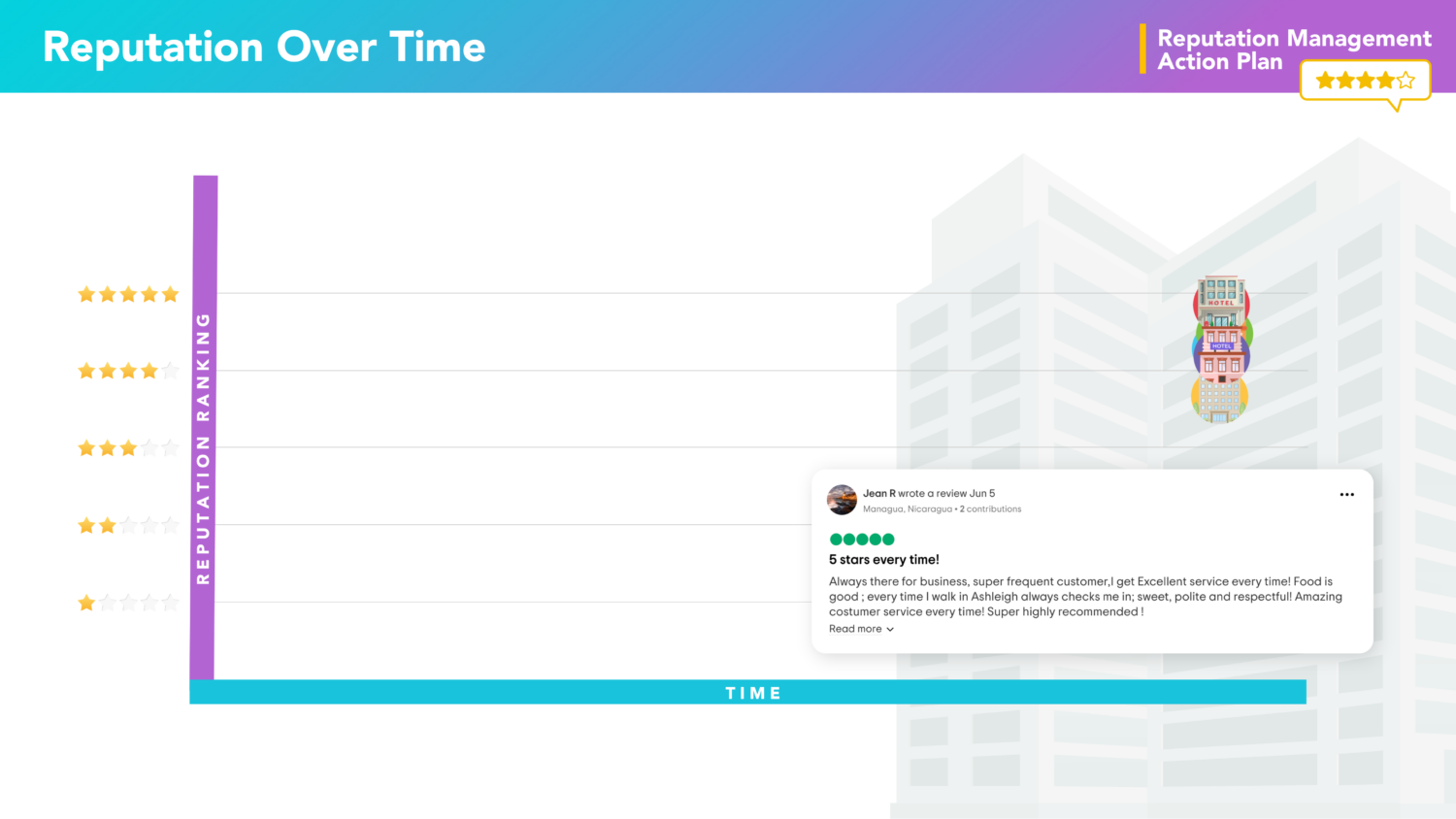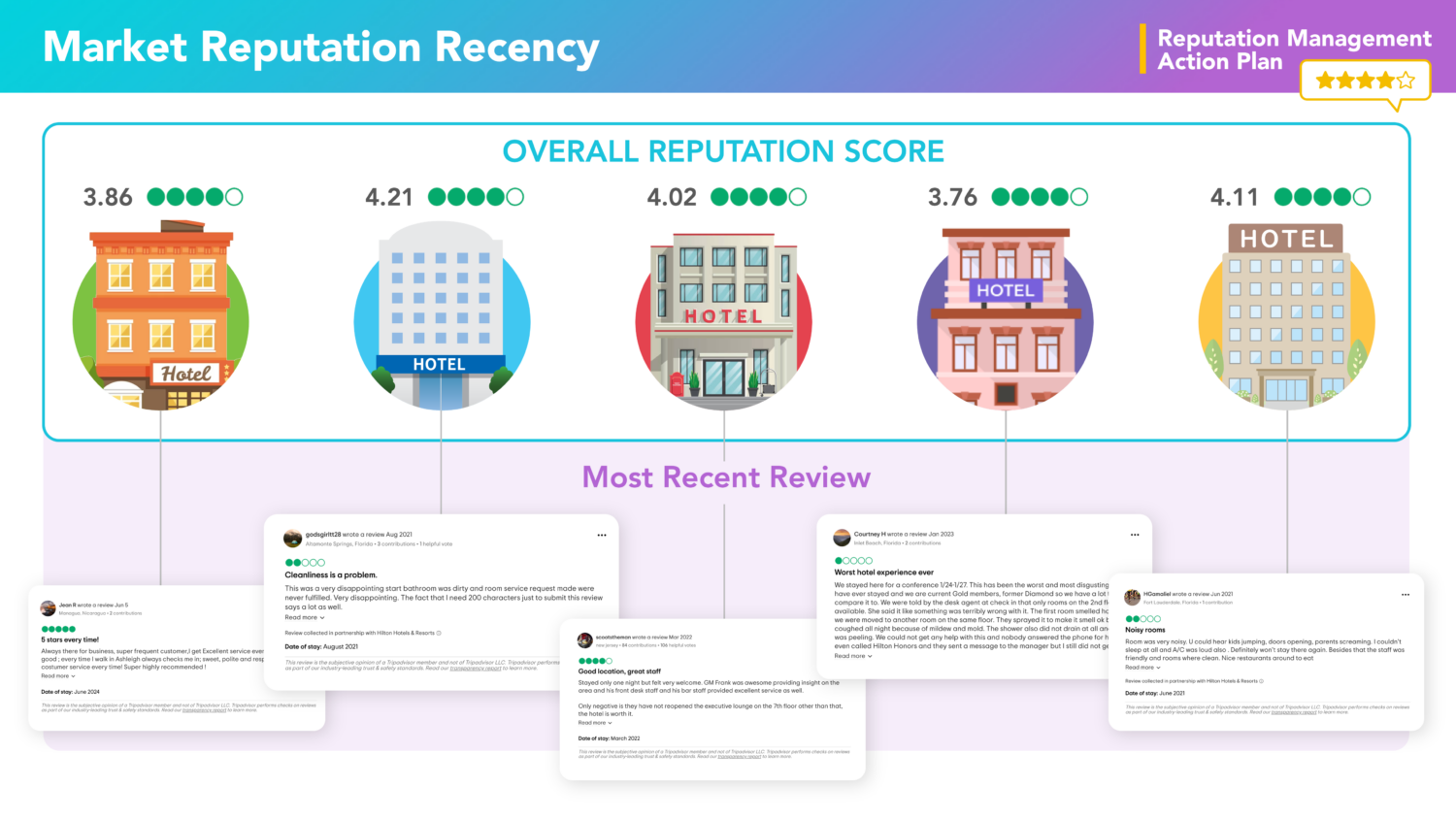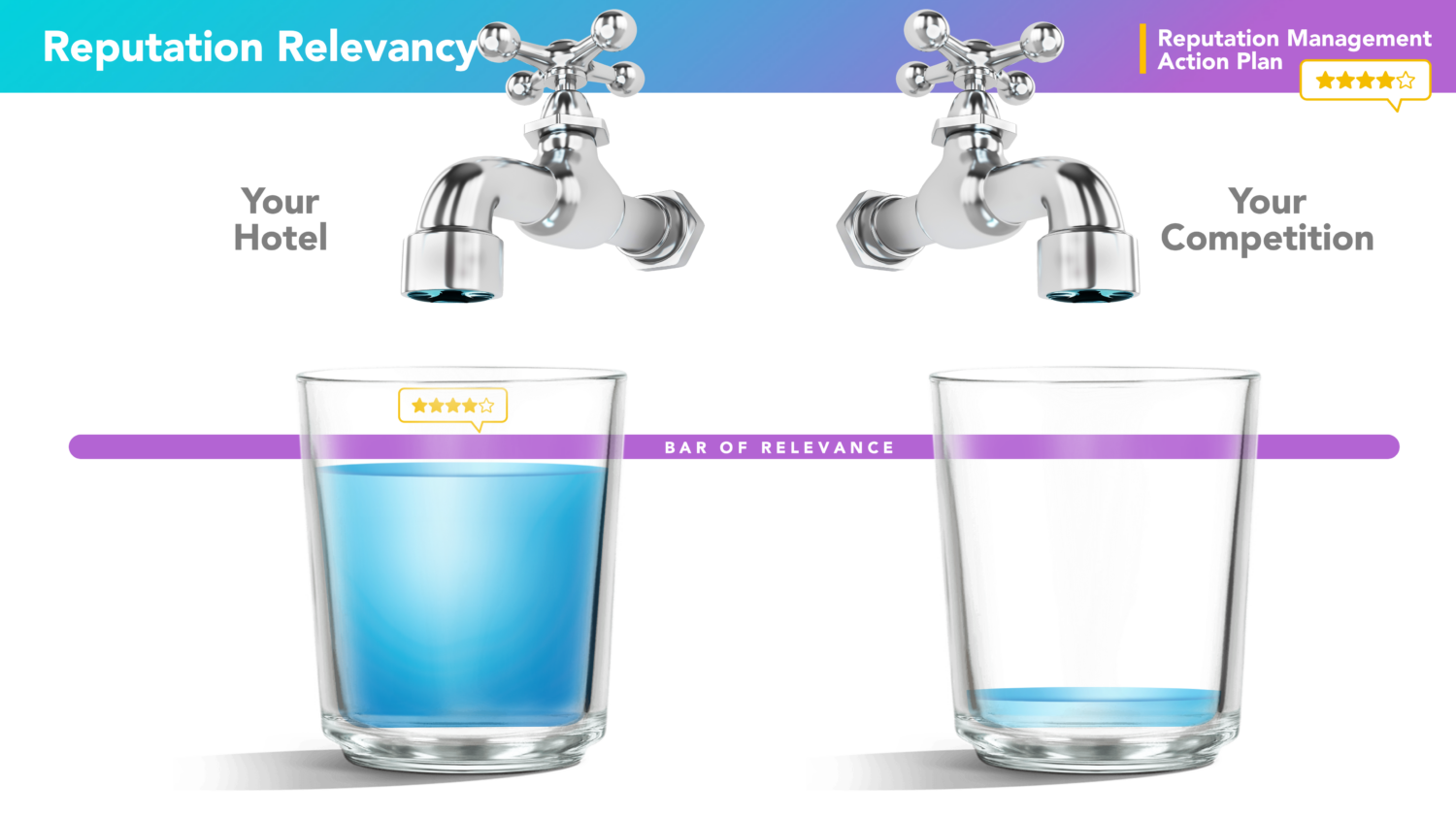
Hoteliers often ask if review responses and guest feedback are still important. The answer is, and will always be, yes. According to Accor’s Importance of Reviews and Reputation Report released in June 2024, 97% of online users read reviews at least some of the time before booking. It is also the #2 most important factor in traveler booking decisions.
NB: This is an article from Travel Media Group
Subscribe to our weekly newsletter and stay up to date

But how has it changed over time? Online review sites have been around for a very long time, resulting in an increase in the number of reviews that hotels receive over time. A decade ago, it may have taken just a few months to move from a 3 to 4.5-star hotel. Now, it can take properties years to achieve this goal.

When looking at the local competition, 4-star properties are not competing with 2-star properties, and vice versa. This shows that things have gotten a lot closer within markets. Travelers are beginning to look at more recent and relevant information. This was a pitfall that many hoteliers fell into during the pandemic.

Post-pandemic, properties felt insulated within their 4-star reputation. For most properties, a lot changed across the board, including staff, amenities, service, etc. Travelers were looking at the most recent information, not the historical and lifetime scores anymore. One-in-five travelers would not look at reviews that are more than two months old. Some properties only receive 1-2 reviews in that span.

Although these overall review scores range from 3.76 to 4.21, the bubble score will appear the same on TripAdvisor (the most trusted review website). So again, what are travelers looking at? They are looking at the most recent information.

You may have a 4-star reputation on TripAdvisor and your last review may be a positive one. But, is it relevant? In order for a traveler to feel like the information is relevant, there has to be a constant flow of new information. If a user goes to booking.com and sees the last review was from a guest whose heater not working and the pool was closed, that won’t help them in the summer who was looking forward to escaping the heat.




